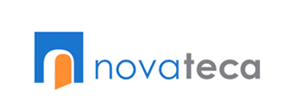
The role of librarians in modern society continues to evolve, producing new leaders who embrace innovation as they manage change in their libraries and help communities attain a higher quality of life. To continue to support librarians and communities through these cultural shifts, Novateca recently facilitated the participation of 12 Moldovan innovator library leaders in a three-week training program at the Mortenson Center for International Library Programs, as part of the Library Innovators Leadership Initiative, held at Illinois University in Urbana-Champaign, U.S.A.
Armed with a number of key questions and issues for investigation, the 12 library innovators representing the Crihana Veche and Taxobeni village libraries, Telenesti, Ungheni, Rascani and Causeni raion libraries, Balti Municipal Library, Chisinau Municipal Library, National Library for Children, and the National Library landed in America ready to breathe in fresh perspectives and concepts for library development.
The Library Innovators Leadership Initiative (LILI) exposed participants to a variety of interactive sessions and provided them new insights on how to ensure attractive and useful library services for their communities. All the trainings, study visits to libraries and extracurricular activities offered librarians the possibility to absorb new ideas and practices, and boosted their confidence in exploring their home library potential.
A travelling librarian: lessons learnt from the training program at Mortenson Center, U.S.A.

Citizens must understand that libraries belong to them. They function because of the finances received from the taxes they pay.
The American population is aware of the fact that a certain amount of their taxes is used for library development and maintenance; therefore, librarians do their best to respond to community needs and offer them useful services.
To inform citizens about the diverse opportunities a library offers and attract additional funding for library development, librarians often initiate advocacy activities and conduct fundraising campaigns. In this context, the American Library Association (ALA) has initiated the national campaign “Libraries Transforming Communities” that seeks to strengthen communities by giving libraries the tools they need to bring disparate voices together and lead change.

There is no such concept as “unusual venue” for librarians to communicate with their community members and assess their needs.
If visiting the farmers’ market to investigate the needs of the farmers and their clients might sound awkward to some, this is not the case of American libraries. Representatives of the Urbana Public Library visit the Farmer’s Market on a monthly basis, offering interactive activities for children, promoting their services and new books, and registering new library users. While in U.S., LILI participants have joined them at the market and made short video interviews with farmers and customers to find out what library services are interesting to them.

As libraries belong to community members, they must be involved in the strategic planning and fundraising activities, as well as the development of library services and the designing of library space.
In the U.S., libraries benefit from the support offered by the fundraising foundations, which are responsible for attracting investments in library development. In addition, there are also “Friends of the Library” groups, which bring together avid library users and supporters to do volunteering activities, advocate for their libraries, books that are excluded from the library book collections, and organize other fundraising activities.
At the Urbana Public Library, the Computer Lab and the Teen Open Lab have been conceived and designed together with library users. Most of the library services were also initiated by teenagers with librarians providing only logistical support, library resources and space.

Library collections are diversified based on library users’ interests.
Most American libraries provide users with not only books, periodicals, and DVDs, but also games, musical instruments, tablets, eBook readers, and video cameras. There are many young people passionate about music who would love to learn how to play a guitar for example, but cannot afford one. Libraries can be very helpful resources in this respect and provide users such opportunities by offering musical instruments on loan.

Library is the place where everyone can benefit from IT trainings and free internet access.
The Chicago Public Library has a team of tutor librarians – ‘Cyber Navigators’ – who offer both group and individual IT trainings for library users. At the Urbana Public Library, librarians host social events for library users who request IT assistance, thus bringing the community together and engaging them in library activities.
American libraries integrate IT education into many of their activities for children, inspiring curiosity and guiding young patrons to explore programming activities and manage e-content.

Librarians use a diverse palette of free online resources to initiate services and develop library promotional materials.
As part of the LILI initiative, librarians gained new skills in using software applications to develop promotional materials, such as Story Maps to create digital stories or Canva to create posters. Also, they learned to record short videos that promote library services.

Librarians should promote their libraries using statistical data.
Librarians should always back up their library stories with powerful statistics, which demonstrate their positive impact on communities. When drafting the library portfolio, it is important to assess the target audience and use statistical data that convinces them about the importance to invest in library development.

The library is a hub where library users gather to create, invent and learn.
In U.S., libraries develop services that improve library users’ skills and help them become better informed. Thus, one will often find interesting programs at the children section, which focus on developing STEM skills or attractive makerspaces and FabLabs that are full of teenagers. Adults often join study groups where librarians facilitate MOOC online courses for groups of people.

With all of these lessons learned and more, LILI participants have committed to build on all they learned in the U.S. and will continue to cultivate their leadership, sharing their new skills and ideas and serving as role models for the entire community of Moldovan librarians.








